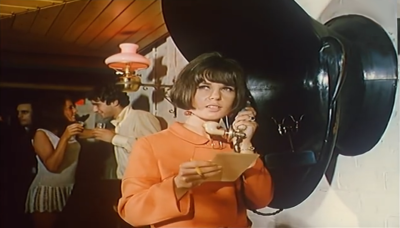Disco script
Title: Strike, Disco, Counter-revolution
In Britain the 70s was not the hangover after the 60s; it was the moment when the 60s actually started.
The successful Miners’ Strike of 1972 saw an alliance between striking miners and students. Just like the general strike in Paris four years earlier.
The 70s also saw the growth in Britain of gay, anti-racist, feminist and Green movements.
They was victimized like we were.
In the 70s, a new kind of music arrived when a number of silenced groups came together. Named after the nightclubs that played records during the Nazi occupation, it was called disco. It was a music made by and for queers, blacks and women. And like most postwar popular music, it was mostly made by the working class.
Here is Chic’s Nile Rodgers, the most important producer and sonic philosopher of the late 70s and early 80s. When he was a teenager he had been a member of the Black Panthers.
The dance floor was an intersection, a crossroads of art and politics.
Disco became the blueprint for new forms of dance music in the 80s and 90s, including house, techno, rave and garage.
Cynthia Rose wrote about a dance floor revolution that might arrive through guerrilla sounds, new ways of moving and living together, of dreaming together with our bodies. A revolution born out of celebration.
Instead of trying to overcome capital, we would focus on what capital would always obstruct: the collective capacity to produce, to care for each other, and to enjoy. Life after capitalism would begin with how we organized care. It would be based on the simple insight that capitalism is not about the creation of wealth, it’s about how common wealth, or common care, is always being blocked.
Organized labour, the environmental movement, women’s liberation, black liberation. Every step towards equality, towards democracy, was a catastrophe for the ruling class. Their reaction shot was a revolution that would globalize labour and blame the factory shut downs on immigrants. It would reshape the economy, so that profit could be squeezed from every corner of society and delivered to the elite. It would be the largest transfer of wealth in human history, and it continues to this day.
The feeling that everyone is in it for themselves has become a cornerstone of today’s class war. It is a reaction shot, a counter punch, to the basements and underground dance floors of the 70s. The new tyranny of selfishness was created to divide us, so that we would forget our old unions, our revolutionary roots in disco.
The new class war began in Chile, after America backed a military dictator who ended the hope that Chile’s coal and lands could be used for its own people. American economists reshaped the economy, and the result was a disaster so profound, that it would be repeated in countries all over the world.
Credits: k-punk, Mark Fisher, Cynthia Rose
